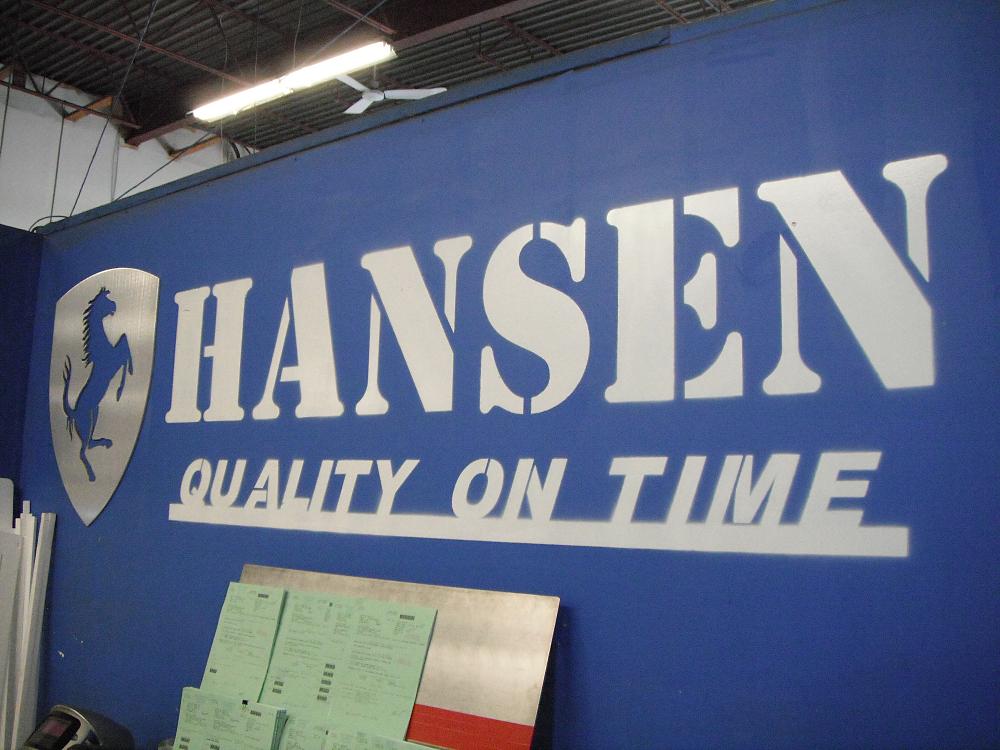Job shop profile: Hansen Industries
After only doing work for electronics companies, the shop realized they needed to diversify - now they're thriving as a result.
VANCOUVER -- On a quiet, leafy street in an industrial area of Richmond, B.C. sits Hansen Industries – a company that’s very much a reflection of the city it resides in.
Hansen is home to an ethnically diverse workforce – with employees from over 20 different countries – and much like Vancouver, and the province’s economy, it’s been steadily expanding and changing over the last decade.
The shop was originally founded by Bjorn Hansen, a Danish tradesman who came to Canada and started making replacement parts for elevators on a small lathe in 1975.
The company took off when they started making dispatch systems for taxi-cabs – a move that necessitated the purchase of two press brakes, and threw them head long into in the sheet metal game.
Today it’s owned by Ed Beange, an electrical engineer by trade, who became president after buying a controlling interest of the company in 1991, and four years later became the sole owner.
With Beange at the helm, the shop took an aggressive approach to customer service, something he feels is vital to shop’s success, especially as the shop is forced to compete with the likes of China.
“We look at what are (China’s) weaknesses? What are they not so good at? And try and compete on those things.”
Customer service was the main thing Beange identifies as an area where China can’t keep up with Hansen.
“We’ve actually written out in a work instruction what superior customer service means. So for every job description, we lay out our expectations – that’s how long before you return a phone call? From the time you receive an RFQ, how long before you get back to them?
“If it’s going to be late we’re telling them. Same with a part, if it’s going to be late we phone them and tell them.”
As a result, the ethos of customer service has taken hold of the shop and had a positive effect on the business.
“Our on-time delivery last year was 98 per cent right across the board, and our quality acceptance levels were 99 per cent. So really high quality and on time delivery,” says Beange.
He also feels it’s important to create a positive workplace for his employees.
“I always say, ‘you get the union you deserve’. If you treat your people well, you pay them decently, and show recognition, you’ll probably never have a union. And that’s part of competing with the Chinese – if you have really good employees.”
“We have father-son combos – and no one will bring their son in if it’s a lousy place to work.”
Currently, the shop still mostly makes metal parts for electronics, but Beange is quick to point out that they’re capable of much more than that.
“Our strength is our versatility. The way I try and differentiate ourselves from all the other shops is that we’re in sheet metal, we’re in machining, we’re in waterjet cutting, we’re in metal stamping. We try and do a bunch of different things so that it becomes like one-stop shopping.”
The decision to become more versatile was very much a conscious one. After Nortel’s demise at the turn of the century Beange realized the company needed to diversify or it would fail.
“What happened in 2001 was (the shop) was all electronics. Then we went, whoa, that hurt (after the Nortel collapse). So anyone that walks in here that doesn’t do electronics, we’re all over them.”
Today the company makes everything from bed frames, to parts for orthotics, and as a result they’ve grown steadily, and are now up to around $8 million in annual sales, with 65 employees spread across two buildings.
Beange also takes the approach that they can always be improving their processes, and getting better, and more efficient through automation.
“We don’t do R&D, but our equivalent of R&D is to try and add another process,” says Beange.
“We bought a robotic welder then spent a year trying to get it to weld aluminum. It’s kind of an art, but once you know how to robotic weld aluminum, you’ve opened things up a lot.”
Beange is also quite optimistic about the future – especially as automation helps drive up productivity – and puts the onus for improvement squarely on his own shoulders.
“Our five year plan is to always grow, grow, grow. So that’s our plan and we keep adding more equipment and automate everything (we) can.
“We’ve had two of our best years ever, and this year is going to be just as good.”
Check out the original article by Canadian Metalworking here!


